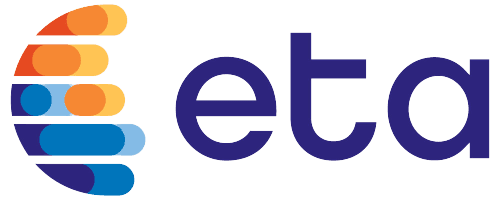As more merchants, including those with high risk merchant accounts, seek to reduce transaction costs, eChecks have emerged as a compelling option among alternative payment methods. The rise of eChecks is reflected in broader trends in the financial landscape, with the National Automated Clearing House Association (NACHA) reporting a steady increase in ACH transactions through the electronic network. With 8.3 billion ACH payments processed in just a single quarter of 2023 and the total value reaching a staggering $21.6 trillion, the shift toward electronic payments is undeniable.
Delve into the intricacies of eCheck processing, exploring how it works, the expected processing times, and the benefits and drawbacks of accepting eChecks.
What Is an eCheck?
An electronic check, commonly known as an eCheck, is a digital counterpart to traditional paper checks, designed to facilitate the transfer of funds electronically, similar to a direct deposit. Instead of physically writing a check and either handing it to the recipient or mailing it, individuals can initiate an eCheck transaction online by entering their bank routing and account information, specifying the payment amount, and authorizing the transfer from their account to the payee’s.
How Does eCheck Processing Work
The eCheck process is built on the Automated Clearing House (ACH) network and maintained by NACHA, a secure electronic payment system used by financial institutions in the United States.
eChecks operate on the same principle as traditional checks but in a digital landscape. A series of key steps ensure the secure and efficient transfer of funds. The process is as follows:
- Customer Authorization: To kick off the transaction, the payer must provide authorization, typically a digital signature or verbal consent—if over the phone—or acceptance of terms on a business's website.
- Payment Request: With authorization secured, the payee enters the necessary bank account details, such as the account and routing numbers, into an online payment form. Then, they submit a payment request to their payment merchant.
- Verification: At this stage, the payment processor verifies the payment details. This involves confirming the payment type and checking that sufficient funds are in the payer's account to complete the transaction.
- Transaction Initiation: The funds are moved through the ACH network upon successful verification. This secure network facilitates the electronic transfer from the payer's account directly to the payee's banking institution.
- Confirmation of Payment: Once the funds have been successfully transferred, both parties are notified with a digital receipt, marking the end of the eCheck transaction process.
How Long Does an eCheck Take to Process?
On average, eCheck transactions take three to five business days to clear through the ACH Network. This timeframe is generally standard in the industry; however, several factors could impact the processing duration.
Same-day processing can occur if the payment processor advances funds on behalf of the payer, allowing recipient businesses to see the funds reflected as swiftly as the next business day. This can be particularly advantageous for businesses dealing with high-risk transactions or requiring rapid fund transfers. Despite this, the more common scenario involves the standard verification process by financial institutions, ranging up to three days. Bank policies may impact a merchant's ability to see same-day processing for this type of payment.
Benefits of Accepting eChecks
Integrating eChecks into your payment processing options can offer many benefits for businesses looking to streamline operations and enhance customer satisfaction. Here are some compelling reasons businesses may want to accept eChecks:
1. Cost-Effective Transactions
One of the standout advantages of eChecks is their significantly lower transaction fees compared to credit and debit card payments. With eChecks, fees are typically from $0.30 to $1.50 per eCheck transaction, whereas credit card processing fees can range between 1.5% to 3.5% of each transaction. According to QuickBooks, eChecks can reduce processing costs by up to 60%.
2. Enhanced Security Features
Safety in financial transactions is paramount in today’s digital landscape, and eChecks rise to the occasion. Unlike traditional paper checks, which can be susceptible to theft and identity fraud, electronic checks utilize advanced encryption technologies, including encryption, digital signatures, and secured online payment forms, which reduce risks such as forgery and theft inherent in physical checks.
3. Faster Processing Times
Electronic check payments can significantly improve cash flow due to their quicker processing times. With payment processors offering real-time account verification, processing can be completed within one business day. This speed, as opposed to paper checks, enhances operational efficiency and allows businesses to access funds more rapidly than traditional check processing.
4. Reduced Instances of Declined Payments
eChecks connect directly to customers' checking accounts, generally more stable than credit or debit cards that can expire or be replaced. This connection drastically reduces the likelihood of declined transactions and bounced checks, especially for recurring payments. Businesses can benefit from a more consistent revenue stream and fewer disruptions caused by payment issues.
5. Access to New Customer Segments
By offering eChecks as a payment option, businesses can appeal to a broader audience, including customers who prefer electronic banking solutions over traditional credit and debit card transactions. Offering this form of payment can lead to increased sales and customer retention as you cater to diverse payment preferences.
6. Streamlined Operations
Accepting eChecks streamlines financial management by eliminating the need to manually handle paper checks, reducing administrative workload and associated operational costs like bank processing fees and reconciliation efforts. Additionally, eChecks offer unlimited data storage, removing the need for manual record-keeping and further enhancing operational efficiency.
7. Environmental Impact
Switching to eChecks can also contribute to sustainability efforts. By reducing reliance on paper checks, businesses significantly reduce paper waste, lower their carbon footprint, and contribute to a greener economy. This environmentally friendly approach can enhance your brand image, appealing to eco-conscious consumers.
Limitations of eCheck Payments
While eCheck payments offer a range of advantages, merchants must also be aware of several drawbacks that can impact their operations and customer relations.
1. Processing Delays and Errors
Unlike instant payment options, eChecks often have slower processing times, leading to frustration for merchants and customers. If any information is entered incorrectly or there are issues with the bank account, the payment may be delayed or rejected.
2. Fraud Risk
Like any electronic payment method, eChecks are susceptible to fraudulent activity. Merchants must be vigilant in verifying the authenticity of eCheck payments, as the risk of chargebacks, although less frequent than credit cards, still exists.
3. Human Error Potential
Human error remains a risk in the eCheck process. Inaccurate data entry, such as wrong account numbers or routing information, can lead to rejected payments.
4. Chargeback Limitations
While chargebacks can be initiated for eCheck payments, the process is stricter than that for credit card transactions. This may lead to complications for merchants when dealing with disputes, as customers may find it more challenging to reverse payments.
5. Potential Fees
Some eCheck providers may impose additional fees that can add to the overall cost of processing payments. Merchants should carefully review the fee structures of various eCheck services to avoid unexpected costs that can eat into their profit margins.
6. Limited Global Reach
For businesses looking to accept international payments, eChecks can be cumbersome due to varying ACH networks across different countries. This limitation can make eChecks a less viable digital payment method for merchants with global customers, as they may face challenges in using this online payment method for cross-border transactions.
Merchants must weigh these considerations, especially those managing high-risk businesses, to ensure that eCheck payments align with their operational capabilities.
Open Up eCheck Payment Options with Zen Payments
Accepting eChecks can result in significant financial savings, enhanced security, faster transaction times, and access to new customer bases. By embracing this digital payment solution, businesses can improve their bottom line and deliver a superior customer experience.
Trusting a payment processor like Zen Payments enables your business to harness this growing form of payment securely and efficiently.
Zen Payments specializes in providing online payment processing solutions tailored for e-commerce, high-risk, and retail markets as well as ecommerce merchant account providers and ACH merchant accounts and services. To start enabling seamless and secure eCheck payment processes that empower your business, contact Zen Payments today.
eCheck FAQ
What's the difference between ACH and eChecks?
ACH (Automated Clearing House) is a network that facilitates the electronic transfer of funds between banks, handling direct deposits and payments.
In contrast, eChecks are a specific type of electronic funds transfer that mimics the traditional paper check process, where an electronic version of the check is created and processed through the ACH network.
While eChecks are a form of ACH payment, ACH encompasses a broader range of electronic payment scenarios, including direct deposits from employers to employees, vendor payments for goods and services, and automatic bill payments for consumers, making it a suitable option for subscription merchant account services.
Why is my eCheck taking so long to process?
If you're noticing a delay in electronic check processing, it's often due to the nature of the ACH network's batch processing. On average, the eCheck processing time is around three to five business days. The sequence includes multiple institutions — the payer's bank, the payment processor, the ACH network itself, and the payee's bank — each playing a role in the funds transfer.
eChecks are not processed on weekends or bank holidays, adding to the processing time. Additionally, verification steps are necessary to ensure the security and validity of the transaction. If there are technical issues or if the payer's account has insufficient funds, further delays can occur.
How long does it take for an eCheck to clear?
The clearing process for an eCheck payment typically takes three to five business days. However, this can vary depending on factors such as bank policies, overall transaction processing volume, and the efficiency of the payment processor involved. During this period, both payer and payee should ensure they have sufficient funds to avoid delays or potential fees associated with insufficient funds.
Why does an eCheck payment take three to five days to clear?
The eCheck clearing process typically takes three to five days due to the time required for banks and the Automated Clearing House (ACH) network to process, verify, and settle the transaction.
When an eCheck is initiated, the payer's bank first verifies the account details and ensures sufficient funds are available. Then they process payments in batches through the ACH network, which operates on a scheduled clearing cycle, leading to potential delays.
Additionally, this time frame allows banks to identify and address any issues, such as insufficient funds or fraud alerts. In some cases, the merchant's bank might hold the funds for up to 24 hours for additional security checks before final clearance to ensure the security and legitimacy of the transaction before final clearance. As a result, the entire process can take several days, even though the digital nature of eChecks may suggest a quicker turnaround.
Do eChecks Clear During Weekends?
eChecks do not clear during weekends because they rely on the banking system, which does not operate on weekends or bank holidays. While an eCheck may be initiated at any time, if an eCheck is submitted late on a Friday or over the weekend, it will likely not be processed until the following business day.






